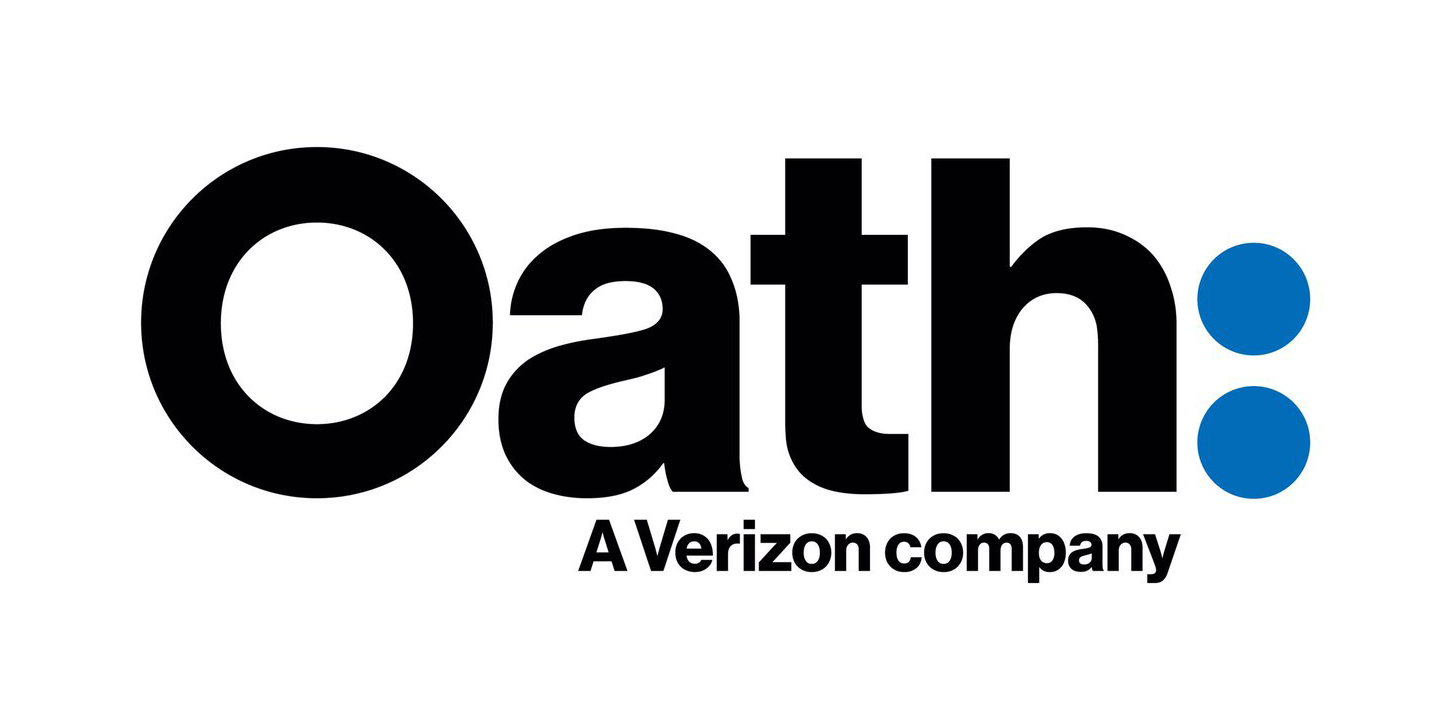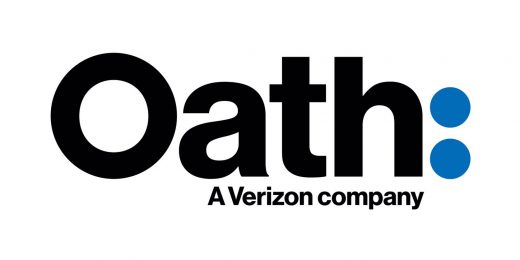Oath And Verizon Inspire Confidence. Not. Yet.
Oath And Verizon Inspire Confidence. Not. Yet.
by John Motavalli , Columnist, April 26, 2017
If anything on the horizon can possibly challenge the duopoly of Google and Facebook in their domination of programmatic advertising, it is the new Oath. That’s the combination of AOL and Yahoo coming from Verizon Communications. With the vast resources of Verizon, which some say is also interested in buying Time Inc., these two former online powerhouses might amount to something. Perhaps. And, tragically, perhaps not.

I recently read Nicholas Carlson’s amusing 2015 book, Marissa Mayer and the Fight to Save Yahoo!. Amusing because it is a litany of failure by the dynamic Mayer, who arrived from Google with a mission to save the service. Her first big mistake was hiring Henrique de Castro from Google to run Yahoo ad sales, despite his having no experience in advertising, and despite his poor reputation at Google, which she was either not aware of or ignored.
When Mayer was forced to fire de Castro in 2014, she was required to pay him over $100 million just to go away because of make-whole deals she had signed. What a fiasco. Two of the only Yahoo ad sales mavens to actually know what they were doing, media vets Wenda Harris Millard and Greg Coleman, were undone by Yahoo’s insular culture. After Coleman left, he tried in vain to get a meeting with de Castro even though, as he pleaded, he was representing $5 million of client expenditure on Yahoo.
But that was just the start of it. Carlson includes a telling anecdote in which Mayer lunches with the venomous Anna Wintour of Vogue, who shudders in horror when Yahoo’s Shine women’s section is mentioned. Because of this, Mayer cuts off funding for the section. She was taking online suggestions from Wintour? Her first appearance at the NewFronts is said to be a disaster, as she dresses down and drones on, reading a boring speech. On a financial board we looked at this week, Mayer is referred to as “the thing that wouldn’t leave.” When she does, reportedly, she will walk away with about $200 million in stock and compensation. What was that about failing upward?
It wasn’t just Mayer. A previous CEO, Scott Thompson, was so unschooled in online advertising that he blew off a scheduled meeting with Interpublic as unimportant and once suggested that Yahoo could solve all its ad problems by just raising rates, apparently unaware of how ad sales at Yahoo worked in the age of online auctions. Thompson ankled after it was found that he had fabricated a degree in computer science.
The Leadership Void
Reading this book, it is clear that one thing has deviled Yahoo since the beginning: very poor leadership at the top. One CEO, Terry Semel, shook hands with Facebook’s Mark Zuckerberg in 2006 on a deal to buy Facebook for $1 billion. In their next meeting, Semel dismissed his previous offer, as if he hadn’t agreed on it, saying Facebook wasn’t worth that much and lowering the price to $850 million. Zuckerberg left in disgust. Today, analysts who estimate Facebook’s future value at $1 trillion are taken seriously as its market cap soars to well over $400 billion. Facebook is worth more than 100 times what Yahoo sold for. Forget Time Warner’s acquisition of AOL, this was a worse transaction than that disaster. And Semel still walked away with hundreds of millions in severance and stock earnings.
And now? Yahoo’s latest 8-K filing this month indicates a 2% drop in display advertising, a 12% drop in paid clicks, and a 3% drop in gross search revenue. Leadership, anyone? Add to this the fact that Verizon just reported its first-ever quarterly loss of paying wireless subscribers, and you get a huge conglomerate crying out for a visionary at the helm.
As a former employee of MCI, I was on hand in the ’90s for the first attempt by a long distance phone company to enter the online world. MCI partnered with Rupert Murdoch’s News Corp. to create an HTML-based competitor to then dominant AOL. Under the leadership of MCI’s Scott Kurnit and News Corp.’s Anthea Disney, we created a viable service, only to see MCI back out at the last minute. (Don’t get me started on this.)
When it came to commitments, MCI’s word wasn’t much more trustworthy than Terry Semel’s.
So one has to ask, can the phone company culture combine with two very different online services that have seen better days to create something great? Remembering the intense culture clash between MCI and News Corp., one has to be skeptical. I would say it’s possible, but only if Verizon hires the right team to utilize the immense amount of personal data Verizon possesses, with the skill to apply it to ad sales.
CNN reported this back in 2013: “When you sign up for Verizon service, you agree to let the company use your location, Web searches, app usage and other data for its Precision Marketing Insights program (you can later opt out). Verizon sends that data to an internal database, matching it up with a deep trove of demographic information about you from companies including data giant Experian. The data are stripped of any personally identifying information, aggregated into categories and are placed into reports for Precision customers to use. The one-two combination of phone activity and personal demographic information paint a revealing portrait of subscribers’ habits for marketers.”
But now, as President Trump’s laissez faire FCC is busy allowing the long distance carriers to use their data they way they see fit, the long distance guys emerge as perhaps the only possible competitor to the Facebook-Google duopoly.
And here I go way out on a limb, but I am used to the view. At the moment, until the deal closes, we’re not sure who will be in charge of the Yahoo/AOL combination. Possibly AOL CEO Tim Armstrong. If I were Armstrong, I would bring in Kurnit to spearhead this new entity.
Kurnit may be the only guy I can think of with phone company smarts who has successfully launched an online service. After MCI left the partnership with News Corp., Kurnit launched about.com, which is ad-supported and was sold first to Primedia for $690 million, then to The New York Times in 2005. Google and Yahoo both bid on it then. Barry Diller owns it now. Interestingly, Kurnit’s family has been heavily involved with the agency business, including his father, the legendary Mad Man Shep Kurnit, and his brother, Paul, who once headed Griffin Bacal for DDB.
But big jobs like this don’t always go to the most qualified. Little things like the makeup of company boards often trump candidates’ qualifications. And Yahoo’s dismal record doesn’t inspire confidence. We shall see.
Also, we hear that Kurnit is also being talked about for a COO job at Uber, but that’s outside our pay grade.
MediaPost.com: Search Marketing Daily
(43)


